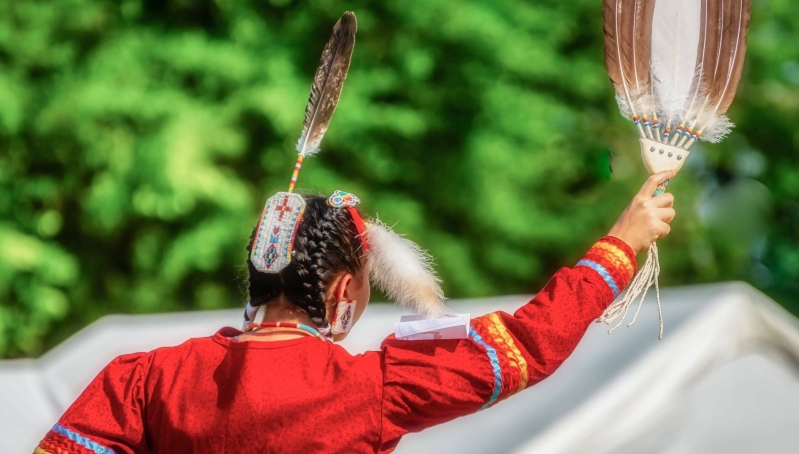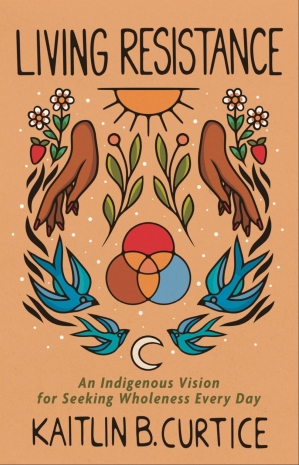
In his posthumously published book, Rescuing the Gospel from the Cowboys: A Native American Expression of the Jesus Way (InterVarsity Press, 2015), the late Native American theologian Richard Twiss (1954–2013) wrote, “When the first European Christians arrived in North America, the Christianity they introduced had the devastating effect of a hostile pandemic-like religion—an aberrant representation of Jesus and a gross misrepresentation of the gospel. It was a Christianity so thoroughly contextualized to European civilization that the mixture of the values of the cultural with the values of Christianity made it aberrant in terms of its net impact on the tribes here.”
One of the cardinal values of the study of World Christianity is the indigeneity of the Christian message.
One of the cardinal values of the study of World Christianity is the indigeneity of the Christian message; that is, the unique ways people around the world express their dedication to Jesus in their respective cultures. The incarnation of Christ, translated into one culture after another, has created a beautiful, global diversity. However, Twiss recognized that the European mission to Native Americans violated the incarnational principle. Instead of celebrating indigenous cultures, the weight of evidence suggests that the European mission sought to erase them.
In March 2024, students from Gordon-Conwell Theological Seminary, Boston University, Boston College, Holy Cross Greek Orthodox School of Theology, Harvard University, and other Boston-based schools met at the Boston College Clough School of Theology and Ministry for the 35th annual Orlando E. Costas Consultation on World Mission and Ecumenism. Costas was a well-known Hispanic theologian and the Adoniram Judson Chair of Missiology at Andover Newton Theological School. Costas focused his work on those at the margins of society, suffering oppression, neglect, and exploitation. His outstanding book, Christ Outside the Gate (1982), contributed to new patterns of missiological thinking. Tragically, he died at age 45 in 1987.

This year, our theme was, “What might we learn if we listen … Insights for Mission, Ecumenism and Interreligious Encounter Today.” To guide us in this theme, we invited award-winning author and poet-storyteller Kaitlin B. Curtice. As an enrolled citizen of the Potawatomi nation, she writes on the intersections of spirituality and identity and how each shift throughout our lives. Curtice gave a beautiful talk drawn from her two books, "Native: Identity, Belonging, and Rediscovering God" (Brazos, 2020) and "Living Resistance: An Indigenous Vision for Seeking Wholeness Every Day" (Brazos, 2023).
Curtice specializes in speaking to diverse audiences interested in truth-telling and healing. Her work echoes that of Richard Twiss’ in exploring what it means to be a Christian in light of settler colonial Christianity operating under the influence of empire. In her book "Native", she reflected on the diluted, whitewashed version of Christianity brought via the European mission and the erasure of indigenous identities and voices. She states, “Settler colonial Christianity is a religion that takes, that demeans the earth and the oppressed, and that holds people in these systems without regard for how Jesus treated people.”
Building off this historical work in Living Resistance, Curtice furthers the conversation by reflecting on a deconstruction and decolonization that remains faithful to biblical Christianity. She encourages readers to think more critically about the core Christian value of recognizing the humanity of all people, created in the image of God, and to dream and fight together for a more just way forward. To do so, however, requires, as she states, “white folks [to] step back and learn how to listen to those who have been marginalized by our society at every level.”
Curtice’s one-hour talk at the Costas Consultation wound its way through history, poetry, theology, ethics, anthropology, and other disciplines with the integrating and unifying ethos of her Indigenous life that might just be the key to reversing our terrible mistreatment of the planet and of human life.
Curtice gently but firmly coaxed the diverse audience to listen more faithfully to Indigenous voices. Alongside the faculty and students, I went home both chastened and encouraged. Back at home I read Curtice’s children’s book, Winter’s Gifts: An Indigenous Celebration of Nature (Convergent, 2023) where the main character, Dani, an Indigenous girl, tells her friends about her winter celebration. They laugh, finding it strange to celebrate the earth. Reflecting on Curtice’s words led me to ask, “What might I learn if I listen…?” The scholarship and advocacy of indigenous American authors like Twiss, Curtice, and many others (see a list below) are desperately needed to break cycles of colonization and assimilation.
Click here for Kaitlin B. Curtice’s recommendations of indigenous authors from a variety of American native backgrounds. At the following link you can watch her sermon “Become Like Children This Earth Day (and beyond)” given at The Riverside Church in New York City on April 21, 2024. You can also follow and connect with her at her website.
Originally published by Overseas Ministry Studies Centre. Republished with permission.
Dr. Todd Johnson is Associate Professor of Global Christianity and Director of the Center for the Study of Global Christianity at Gordon-Conwell Theological Seminary. He is also visiting Research Fellow at Boston University’s Institute for Culture, Religion and World Affairs leading a research project on international religious demography. Todd is co-editor of the Atlas of Global Christianity (Edinburgh University Press) and co-author of the World Christian Encyclopedia (Oxford University Press, 2nd ed.) and World Christian Trends (William Carey Library). He is editor of the World Christian Database (Brill), co-editor of the World Religion Database (Brill), and co-author of The World’s Religions in Figures (Wiley-Blackwell).





